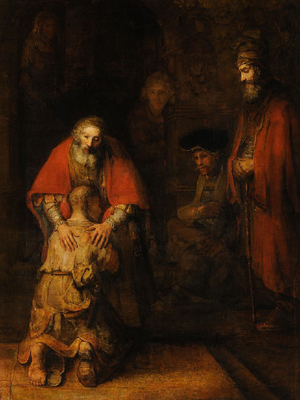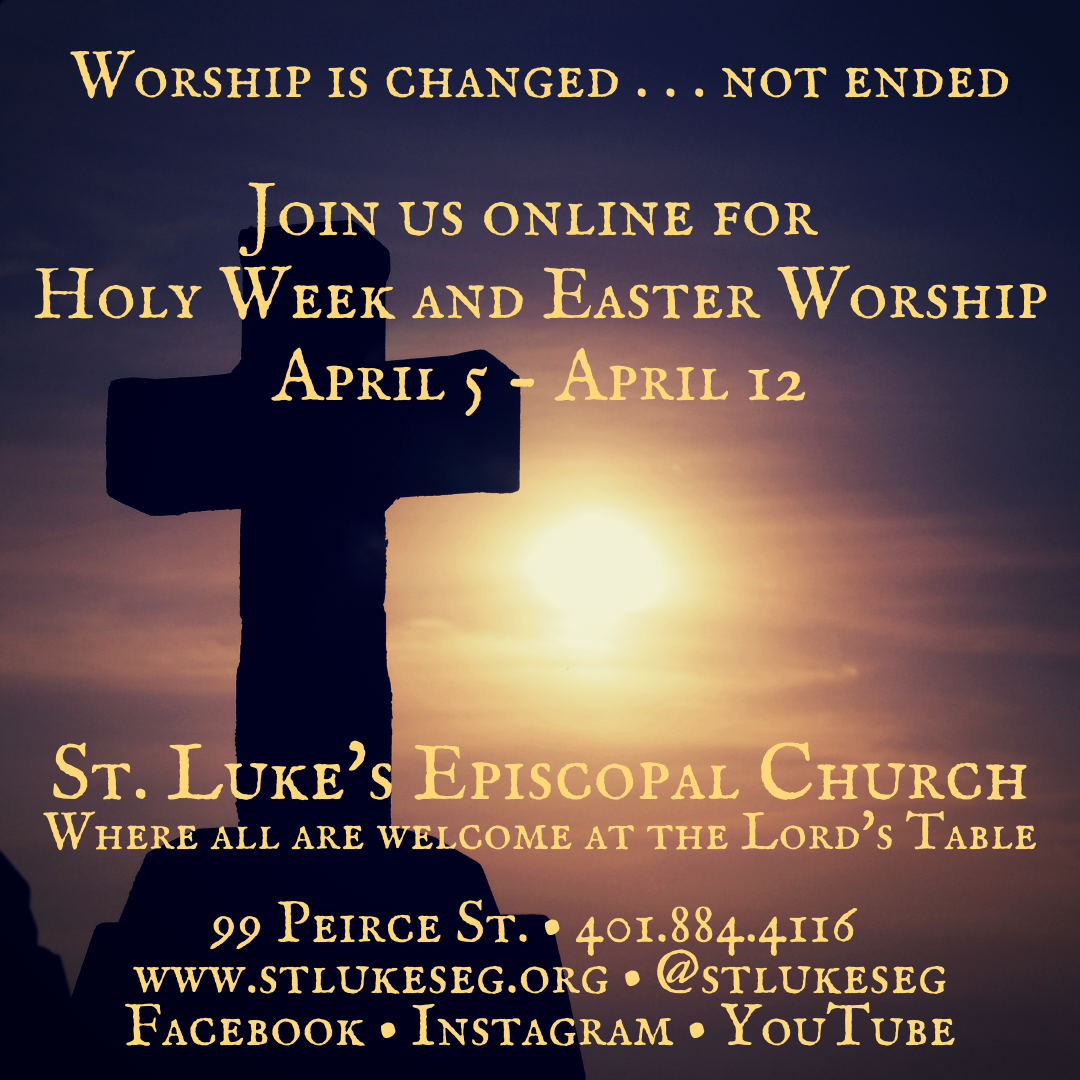Home > Lenten Blog 2025
The Return of the Prodigal Son…the next day
March 30, 2025

Joshua 5:9-12 | 2 Corinthians 5:16-21 | Luke 15:1-3 11b-32 | Psalm 32
Today’s gospel of Luke features the story of the Return of the Prodigal Son. Like the parable of the Good Samaritan, this story is well known and has become integrated into our popular culture. It is a simple yet powerful and poignant story, with characters we recognize and circumstances we (or someone we know) have experienced – or can easily imagine ourselves experiencing. The story has inspired art, as in Rembrandt’s masterpiece, books like Henri Nouwen’s The Return of the Prodigal Son and even a song by the Rolling Stones (https://www.youtube.com/watch?v=humDgJ-SmHI&list=RDhumDgJ-SmHI&start_radio=1)
The young and foolish son has left home with his inheritance only to quickly lose everything in scandalous living in a distant land. Having nothing and no one to rely on, he must perform the most degrading work available: feeding swine. In his desperation he thinks; “maybe I could return home. I know that I have really messed up and I can’t expect to return to the family, but maybe they could take me on as a hired hand.” He begins the long and humbling trip home.
The father, who has been scanning the horizon daily since the son’s departure, sees the young man at a distance and runs to meet him. The son falls on his knees before the father and confesses his sins while acknowledging that he is no longer worthy of being a son. The father, filled with compassion, hugs and kisses his son as he directs the servants to bring the best robe, a ring and a pair of sandals for the wretched young man. The fatted calf is slaughtered, and a welcome home party gets underway.
Now the elder son, who has remained steadfast by his father side and managed the family business throughout his brother’s absence, is shocked to learn that: his dishonored brother has brazenly chosen to return home; his father has greeted the son with joy and thanksgiving; they have killed the fatted calf and are now celebrating the return of this “prodigal” brother; and now the father is asking the older brother to join in the celebration. “Come and celebrate with us. You know I love you, but your brother was dead, but is now alive, was lost but now is found.”
The elder son is filled with self-righteous anger. (I really relate to the older brother – I admit to reveling in a good bout of self-righteous indignation every now and then). “Where’s my party?” he asks the father. I’ve worked hard and remained faithful to you throughout my life. This kid has disgraced our family. I’m not coming to any party for him. Grumble, grumble grumble….
While this story is known in popular culture, this is primarily a story about God’s extravagant grace – which is appreciated better in the context of faith and belief, I believe.
The characters of the story capture parts of our own self-images:
- Who hasn’t messed up and wished for a chance to start over, like the younger son?
- Who hasn’t wished they could be as loving, generous and forgiving as the father?
- Who hasn’t basked in the heat of self-righteous indignation like the older son?
Through God’s extravagant grace we are offered forgiveness and called into reconciliation with ourselves, our family, friends, our community, even the world. God is actively scanning the horizon to see if we’ve made that turn and are headed back home and will meet us on the run.
Grace is a gift, but like any gift it must be received, acknowledged and the giver thanked. I know from personal experience – that’s not always easy. There are obstacles to grace, and we erect them ourselves. Over the years as I’ve reflected on the story of the Return of the Prodigal Son I sometimes wonder about the next day – the day after the son’s return. While the servants are busy tidying up the living room and the family has come down to enjoy some latkes and figs for breakfast, what’s the mood?
I put myself in the place of the younger son, and I have to believe he’s feeling overwhelmed, and probably embarrassed. The welcome home far exceeded any expectation he could have had. While he’s deeply moved by his father’s generosity and love, he’s probably also feeling great remorse for the shame he’s brought to the family and great uncertainty about his place in the family. Will his shame and the remaining fragments of his own pride interfere with his reconciliation with the father?
And what about the older brother. Given a little time, has he found it in his heart to forgive his kid brother, or is he clinging even more strongly to self-righteous indignation and hurt feelings?
What will the father say now that the dramatic reunion has been achieved? Will he encourage the younger son to work and find a place in the family, and will he find a way to soften the heart of the elder son, whom he also loves?
In a lifetime it’s likely that we will all experience our own “swine-feeding” days. And if we’re open and willing, we may be able to make that humbling turn toward home and embrace the restoration of relationship with another and with God. And we will certainly be vexed by our own self-interest, anger, pride and arrogance. Reconciliation takes effort and it takes time. But we are called to recognize and overcome the obstacles to grace – and continually seek reconciliation.
As Paul says in his Second Letter to the Corinthians:
All this is from God, who reconciled us to himself through Christ, and has given us the ministry of reconciliation; that is, in Christ God was reconciling the world to himself, not counting their trespasses against them, and entrusting the message of reconciliation to us.
Through Lent, let’s consider ways we can foster reconciliation in our families, communities and even the world. Make that turn towards home. I’m confident that God is scanning the horizon watching for us.
Paul Brookes


